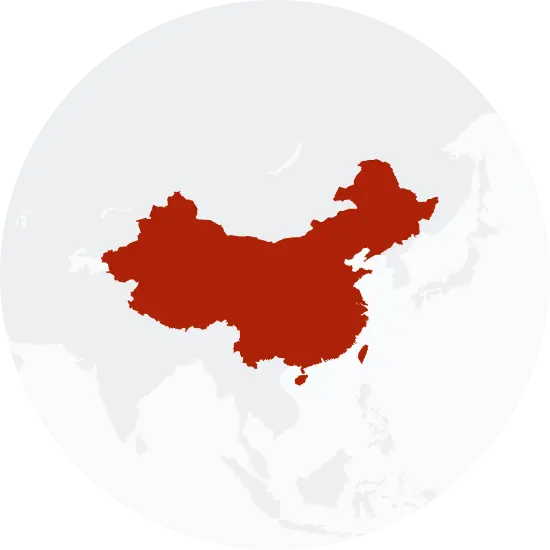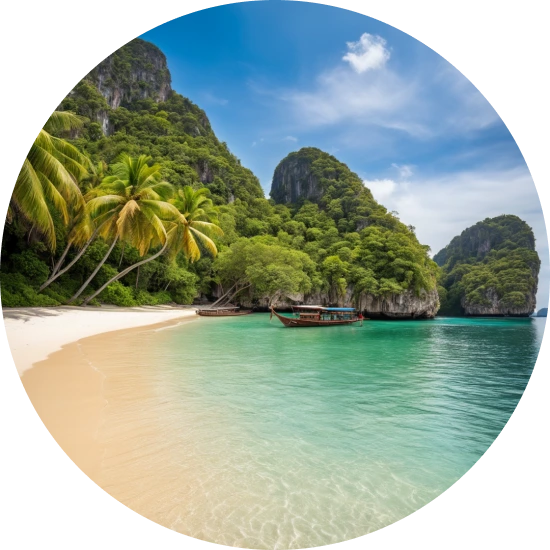Explore the Family Name Mo
How common is the last name Mo in the United States?
Based on the Decennial U.S. Census, the popularity of the surname 'Mo' significantly increased between the years 2000 and 2010. In 2000, 'Mo' was ranked 12,112th in terms of commonality, but by 2010, it had risen to the 8,320th position, marking a growth rate of 31.31%. Similarly, the count of individuals with this surname rose from 2,361 to 3,983, showing a substantial increase of 68.7%. This surge also caused the proportion per 100,000 people to grow from 0.88 to 1.35, an impressive leap of 53.41%.
| 2000 | 2010 | Change | |
|---|---|---|---|
| Rank | #12,112 | #8,320 | 31.31% |
| Count | 2,361 | 3,983 | 68.7% |
| Proportion per 100k | 0.88 | 1.35 | 53.41% |
Race and Ethnicity of people with the last name Mo
In the realm of ethnicity, the Decennial U.S. Census reveals that the majority of individuals with the 'Mo' surname identify as Asian/Pacific Islander, a figure that remained fairly constant from 2000 to 2010 (85.85% to 85.79%). The percentage of those identifying with two or more races decreased by 21.45%, while the white demographic saw a slight decrease from 7.50% to 7.48%. Interestingly, both the Hispanic and Black communities saw increases in representation among those with the 'Mo' surname, going up by 9.87% and 28.03% respectively. However, the representation of American Indian and Alaskan Native identities remained at 0.00%.
| 2000 | 2010 | Change | |
|---|---|---|---|
| Asian/Pacific Islander | 85.85% | 85.79% | -0.07% |
| White | 7.5% | 7.48% | -0.27% |
| Hispanic | 2.33% | 2.56% | 9.87% |
| Two or More Races | 2.75% | 2.16% | -21.45% |
| Black | 1.57% | 2.01% | 28.03% |
| American Indian and Alaskan Native | 0% | 0% | 0% |
Mo ancestry composition
23andMe computes an ancestry breakdown for each customer. People may have ancestry from just one population or they may have ancestry from several populations. The most commonly-observed ancestry found in people with the surname Mo is Chinese, which comprises 62.5% of all ancestry found in people with the surname. The next two most common ancestries are French & German (5.0%) and Chinese Dai (4.2%). Additional ancestries include British & Irish, Spanish & Portuguese, Eastern European, Vietnamese, and Korean.
Ready to learn more about your ancestry? Get the most comprehensive ancestry breakdown on the market by taking our DNA test. Shop 23andMe
| ANCESTRY BREAKDOWN | COMPOSITION |
|---|---|
| Chinese | 62.5% |
| French & German | 5.0% |
| Chinese Dai | 4.2% |
| Other | 28.3% |

Possible origins of the surname Mo
Your DNA provides clues about where your recent ancestors may have lived. Having many distant relatives in the same location suggests that you may all share common ancestry there. Locations with many distant relatives can also be places where people have migrated recently, such as large cities. If a large number of individuals who share your surname have distant relatives in a specific area, it could indicate a connection between your surname and that location, stemming from either recent ancestral ties or migration.
Based on 23andMe data, people with last name Mo have recent ancestry locations all within China.
| RECENT ANCESTRY Location | Percentage |
|---|---|
| Guangdong, China | 50.00% |
| Jiangsu, China | 50.00% |
| Zhejiang, China | 50.00% |
| Shandong, China | 50.00% |
| Shanghai, China | 49.20% |
What Mo haplogroups can tell you
Haplogroups are genetic population groups that share a common ancestor on either your paternal or maternal line. These paternal and maternal haplogroups shed light on your genetic ancestry and help tell the story of your family.
The top paternal haplogroup of people with the surname Mo is O-M95, which is predominantly found among people with East Asian & Indigenous American ancestry. Haplogroup O-M95 is descended from haplogroup O-M1359. Other common haplogroups include DE-M145 and O-Page23, which are predominantly found among people with European and East Asian & Indigenous American ancestry. Other surnames with similar common haplogroups are: Lau, He, Hu, Lee, Leong, Chung, Earhart, Eakins, Nicosia, Nicolosi.
The most common maternal haplogroups of people with Mo surname are: M, B4, H. These most commonly trace back to individuals of European ancestry.
 Paternal Haplogroup Origins O-M1359
Paternal Haplogroup Origins O-M1359
Your paternal lineage may be linked to many Indian ethnic groups
Haplogroup O1b1a1a is thought to have arisen in India, roughly 25,000 to 40,000 years ago, and is present in many Indian ethnic groups today. The Indian subcontinent holds four major language groups, called Austro-Asiatic, Dravidian, Indo-European, and Tibeto-Burman. Haplogroup O-M95 likely originated in Indian Austro-Asiatic populations. Its early members carried both the O1-M95 haplogroup and Austro-Asiatic languages further into Southeast Asia through the Northeast Indian corridor. Current research suggests migrating members of O-M95 left eastern India traveling east, through Myanmar, southern China, Vietnam, Laos, Cambodia, and Thailand, and ended in the Andaman and Nicobar Islands. One study found that 100% of a Nicobar Island population belonged to haplogroup O-M95.
Your maternal lineage may be linked to the Han
Members of haplogroups B4 and B5 are quite frequent in both northern and southern Han Chinese populations. The Han people, who all share the same language and similar cultural practices, are the largest ethnic group in the world, with about 1.2 billion people. Historical evidence shows that Han people are descendants of the ancient Huaxia tribes that come from northern China, centered in Zhongyuan, China's Central Plain. The spread of Han people, language and culture from northern to southern China only occurred in the last 2,000 years, and was likely driven by warfare and famine in the north.

What do people with the surname Mo have in common?
Spoiler alert: it's complicated. People with the same last name are usually no more genetically similar than a randomly sampled group of people from the same population. That said, people with the same surname are more likely to have similar ancestries than randomly sampled individuals. The reason is the tendency of people with similar cultural or geographical backgrounds to preferentially mate with one another. That's why people who share a surname may be more likely to share traits and tendencies in common than people within the general population. Check out the percentages below to see the prevalences of tastes, habits, and traits of people with your surname compared with prevalences among 23andMe users.
Preferences

Vanilla Ice Cream
Prefers vanilla flavored ice cream over other flavors.
"Mo" Surname 50.0%
23andMe Users 36.7%
Traits

Cheek Dimples
Small indentations that appear on the cheeks when a person smiles.
"Mo" Surname 35.7%
23andMe Users 37.6%
Habits

Sugary Drink
Drinks one or more sugary drinks per day.
"Mo" Surname 25.0%
23andMe Users 21.1%
Wellness

Migraine
A severe headache characterized by intense pain, sensitivity to light and sound, and often accompanied by nausea and vomiting.
"Mo" Surname 10.8%
23andMe Users 16.4%
Are health conditions linked to the last name Mo?
The short answer is that, if there is an association between surname and health, it's usually more about your ancestry than your name. Individuals with a given surname are no more genetically similar than the general population but often have similar ancestries. The populations of people associated with those shared ancestries often have sets of genetic variations, also known as alleles, in common. Some of those alleles are associated with a greater likelihood of developing certain diseases.
Disease variant frequency by ancestry
Disease allele frequencies in populations associated with the surname Mo are shown below. Important Note: not everyone with a disease allele will develop these health condition
